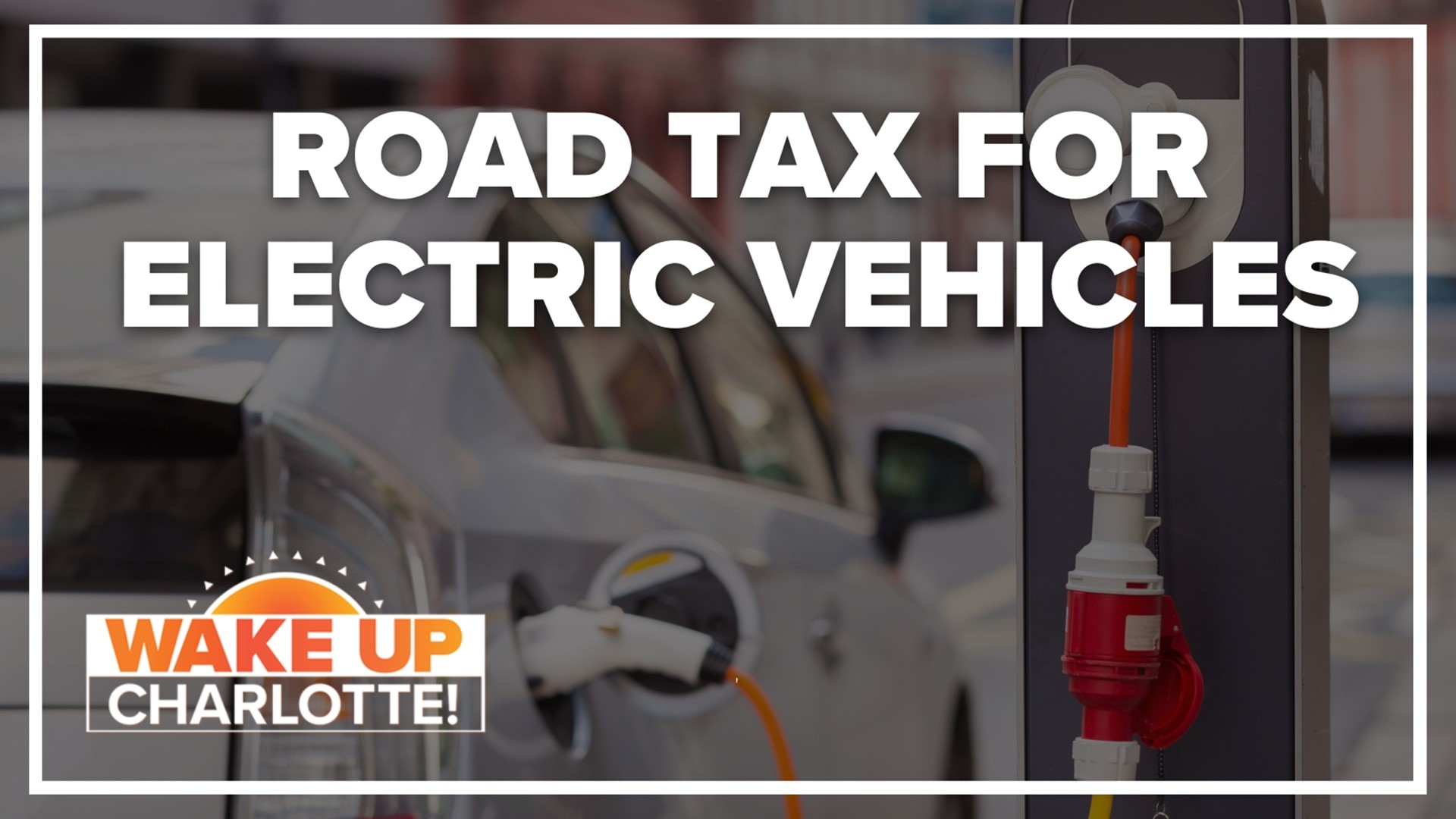CHARLOTTE, N.C. — A recent Bloomberg study shows that by the year 2040, 58% of vehicle sales will come from electric vehicles.
With the recent increase in the gas tax in North Carolina, which helps pay for road construction and maintenance, some are wondering how the state will recoup the tax money that's lost since electric vehicles don't run on gas.
Viewer Duane K emailed WCNC asking, as of Jan. 1, state road tax went up two cents with the push for electric cars. Can the state recoup road tax on electric vehicles?
WCNC took this very question up to Raleigh at the NCDOT conference. This is where leaders from NCDOT and some lawmakers and companies met to talk about issues and solutions for North Carolina roads. A big topic is electric vehicles.
OUR SOURCES:
"Companies are demanding that their fleets be electric more people are buying electric vehicles," Governor Cooper said.
Governor Cooper said it himself: North Carolina is on the fast track when it comes to buying electric vehicles NCDOT's latest stats from October show 51,000 registered electric or hybrid vehicles on North Carolina roads. Hopkins said right now, lawmakers are working on ways to help offset the loss of gas tax revenue since electric vehicle users never pay a penny of it.
Contact Meghan Bragg at mbragg@wcnc.com and follow her on Facebook, Twitter and Instagram.
"That's something our leaders in the legislature have had a conversation about as more people start driving electric vehicles. Much of our funding comes from the gas tax, so you have a loss there," Hopkins said.
NCDOT tells WCNC as of now, there is a 140-dollar annual registration fee for electric vehicles. This is to help replace the lost revenue ordinarily generated through the gas tax. However, as more and more people are buying EVs, Hopkins says the state is looking for more ways to spread the burden equally.
"It would go maybe something like a user tax, but that is still being worked through right now," Hopkins said.
VERIFY is dedicated to helping the public distinguish between true and false information. The VERIFY team, with help from questions submitted by the audience, tracks the spread of stories or claims that need clarification or correction. Have something you want VERIFIED? Text us at 704-329-3600 or visit VERIFY.

